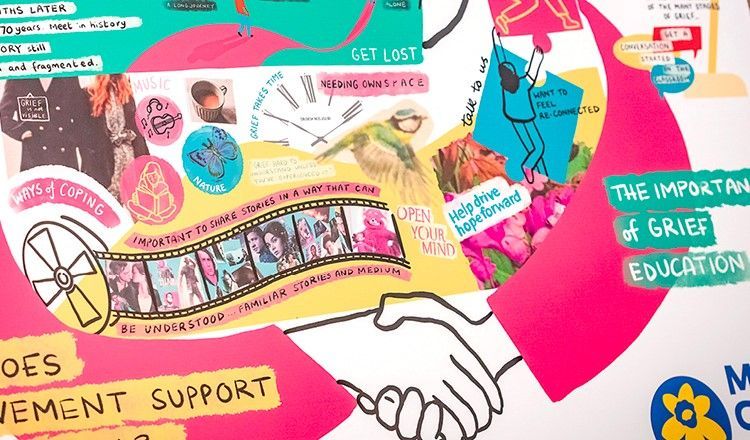Grief can impact anyone at any time, and that includes children. Whether it’s an elderly relative or someone close to them who’s living with a terminal illness, many children may experience grief without having access to appropriate support.
“My brother Georgie died due to leukaemia, a type of blood cancer, when I was four years old" explains Emma, 15. "My understanding of death and the concept of grief only came in dribs and drabs across the years that followed. The worst of the grief came when I started secondary school. I never had much bereavement support from my primary and when I went into first year I started to want support.”
But Emma found there was little support and didn’t know where to turn. Emma was part of the Marie Curie School Bereavement Programme that ran between 2020-2024. Marie Curie staff set out to research how young people deal with grief, what support is available in schools, and how to improve grief support and education.
The goal was clear: make every school a place where pupils are supported to prepare and cope with bereavement.
Teacher training
The team joined forces with independent child bereavement counsellor Ann Scanlon to develop a one-day training course for teachers, with tailored information and resources to help them to support bereaved children of all ages. In partnership with CRUSE Northern Ireland, this was delivered to 374 teaching and school staff across 162 schools.
“I was lucky enough to be part of the project; it very quickly identified the importance of training. It brought a practical element to the training that we don’t normally get the opportunity to explore,” says Ciaran Milligan, Resilience Lead at Shimna Integrated College.
Before the training, only 15% of teachers felt they had the information needed to support a young person through their grief. After the training this rose to 85%.
“Not having training immediately puts you at a disadvantage. Working with Marie Curie has meant that more people are now aware of the importance, more people have the training and confidence that is needed for a situation that we will all face in the workplace,” says Ciaran.

What did young people have to say?
Perhaps the most important part of the work was understanding the experiences and views of the young people themselves. In 2024 through the Northern Ireland Young Life and Times Survey, funded by Marie Curie, over 1,100 16-year-olds answered questions on bereavement and grief support. Some of the key findings were:
- 46% of young people said they found it hard or very hard to talk about bereavement compared to their belief that 79% of people would find it hard or very hard.
- Around 90% agreed that it is important that schools offer bereavement support.
- Around 80% agreed that it was important that schools offered grief education.
- In responses to statements, the 16-year-olds felt strongly that grief education in schools could help people understand bereavement, making it easier to talk about this difficult topic.
Emma’s experiences reflect exactly this: “I know that my friends never knew how to react to my grief, and I could tell they found it awkward or uncomfortable so they would try to move the conversation to something else. Although I know they didn’t have any bad intentions it made me feel like my grief was ‘too much’”.
The main takeaway is that young people believe grief education is important and that although everyone processes grief differently, schools should be equipped with flexible bereavement support processes and resources.
What impact is the research having?
The Compassionate School Communities Report laid out the following key recommendations aimed at creating a school culture and practice where it's ok to talk about grief, and all bereaved children and young people are supported.
- Strengthen education policy guidance for schools i.e. make pupil bereavement information and support a core well-being priority for schools.
- Require every school to have a bereavement policy.
- Give all teaching staff a range of opportunities to receive bereavement training the curriculum should include opportunities for students to discuss grief.
- The health and education sectors should work in a co-ordinated way to ensure young people are supported in school and other areas of the community.
What impact has this research had?
Since the launch of the report, the team have been focused on advocating for policy change by lobbying Northern Ireland Government.
The research has also influenced others to do what they can to raise awareness and offer support - for example, the Northern Health and Social Care Trust have started a new school initiative which draw on the recommendations from the report. We have also heard from individual schools who have developed or reviewed their school bereavement policy or established support networks in their school.
Marie Curie supports people at the end of life and their loved ones, no matter the illness. If this is something you're living with, you can access emotional support, including for bereavement, as well as practical information through our Support Line.
Our research and policy work helps address the gaps in evidence and policy for those affected by death, dying and bereavement. This includes identifying ways to strengthen grief education and bereavement support in educational settings.
By donating to Marie Curie, you can help us close the gap in end of life care, including bereavement support.
